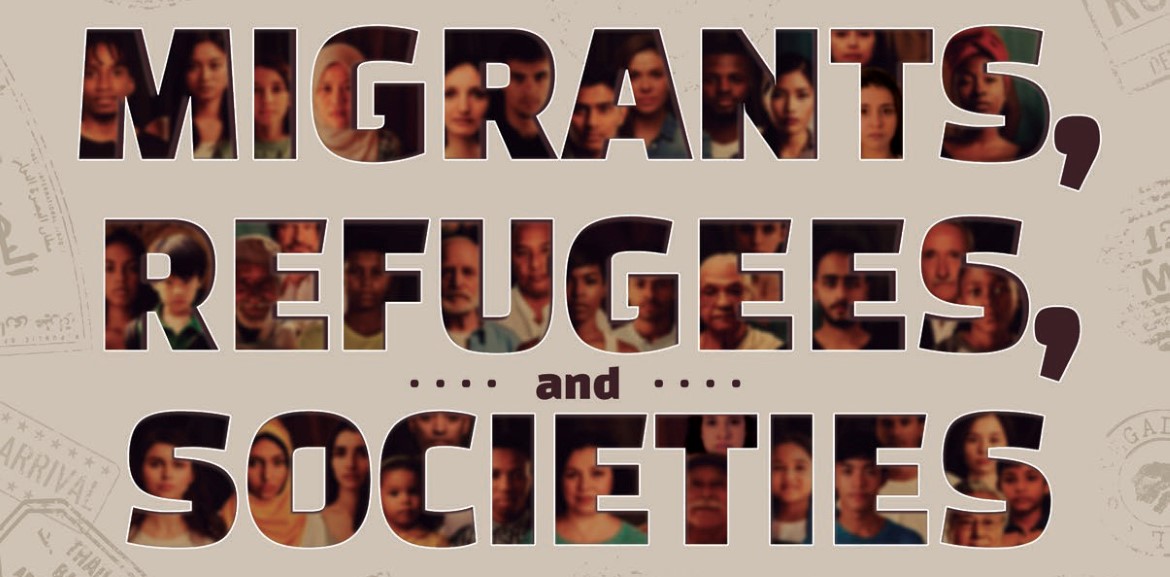
World Development Report 2023: How can migration increase development action?
Norad invites to the national launch of the World Development Report 2023: Migrants, Refugees and Societies.
When: 29. November 09:30-12:00
Where: Norad Info Center, Bygdøy Alle 2, Oslo, 5th floor
With this year’s World Development Report, the World Bank is putting migration at the core of the development agenda, stated in the SDG 10.7 goal to facilitate “orderly, safe and responsible migration and mobility of people”.
Demographic changes in the world are increasingly making migration a necessity for many countries.
There are currently around 184 million migrants in the world – and out of these, 43 percent lives in low- and middle-income countries.
On November 29th, Norad invites to the national launch of the World Development Report 2023. Here, we will evaluate; how can migration remain and even be strengthened as one of the most powerful tools for development and prosperity?
At the launch, we will be introduced to the term ‘match and motives’, which is developed to help policy makers design migration policies that will benefit the development of both origin- and destination countries, in addition to the migrants themselves.
Norad’s Director General, Bård Vegard Solhjell, will kick-off the seminar, before Tine Mørch Smith, Director General, MFA will provide opening remarks, and co-director of the report, Xavier Devictor, presents its key findings. Representatives from the Peace Research Institute (PRIO) and International Organization for Migration (IOM) will give their comments on the report’s key findings. In the end, we open up for a panel discussion with;
- Xavier Devictor, co-director of the World Development Report, World Bank
- Marta Bivand Erdal, Research Professor at the Peace Research Institute (PRIO)
- Marie McAuliffe, Head of Migration Research Division at IOM
- Arvinn Gadgil, Director of UNDP Global Policy Centre for Governance
Program
Program
09.30 - Registration, Light breakfast
10.00 - Welcome, Bård Vegar Solhjell, Director General, Norwegian Agency for Development Cooperation (Norad)
10.10 - Tine Mørch Smith, Director General, Department for Multilateral Affairs, Ministry of Foreign Affairs, Norway (TBC)
10.20 - Xavier Devictor, Co-Director of the World Development Report 2023, World Bank
10.40 - Marta Bivand Erdal, Research Professor at Peace Research Institute in Oslo (PRIO)
10.50 - Marie McAuliffe, Head, Migration Research and Publications Division at International Organization of Migration (IOM)
11.00 - Panel discussion: How can migration increase development action?
- Xavier Devictor from the World Bank
- Arvinn Gadgil, Director, UNDP Global Policy Centre for Governance
- Marta Bivand Erdal,PRIO
- Marie McAuliffe, IOM
Moderator: Senior Advisor Stein Erik Horjen, Norad.
12.00 End
Click here to register for the event
The event will be streamed, a streaming link will be probided ahead of the event. As a participant, you may be visible on the stream.
More about the event:
A migrant in the World Bank terminology is understood as a person living in a country with a foreign citizenship. There are 184 million migrants in the world today, and 37 million of them are refugees. 43% of the world’s migrants are living in low- and middle-income countries.
With demographic changes migration is increasingly becoming a necessity for countries at all income levels. A key observation in the WDR 2023 is that falling birth rates in High- and Middle-Income Countries make them dependent on migration from Low Middle-Income Countries. Simultaneously, the population of Low-Income Countries is booming, but many young people are entering the workforce without the skills needed in the global labor market. In this situation, how can migration remain and even be strengthened as one of the most powerful tools for development and prosperity?
Migrants are not a homogenous group, but people with different needs and resources. The people that receive them, the hosting societies, also differ. The report introduces the term match and motives to explain whether and how migrants are matching the needs where they are coming and what motivates their movement. The match determines the extent to which migrants, countries of origin, and countries of destination gain from migration. The motive may create international law obligations for the destination country: people who move because of a “well-founded fear” of harm or persecution at home—refugees, by definition—are entitled to international protection.
This report helps policy makers and development actors create policies and actions to meet these challenges. With the “match and motive matrix” the report presents various options that challenges both origin and destination countries to manage mobility and migration in an orderly, safe and responsible way.

